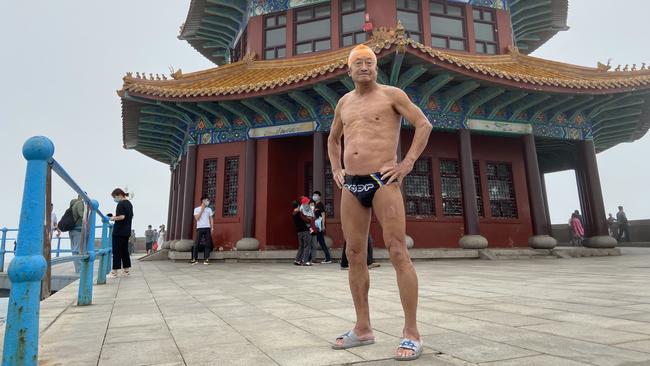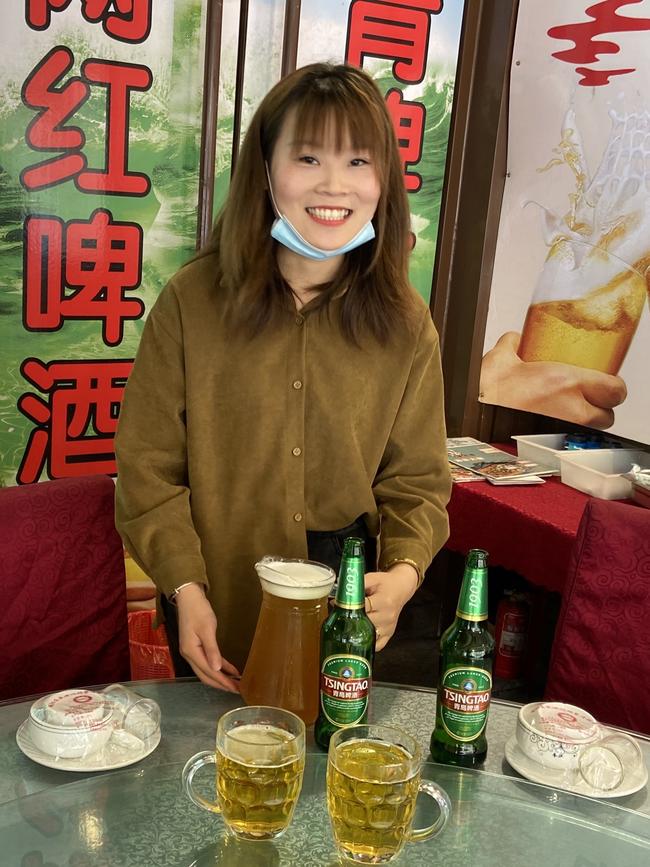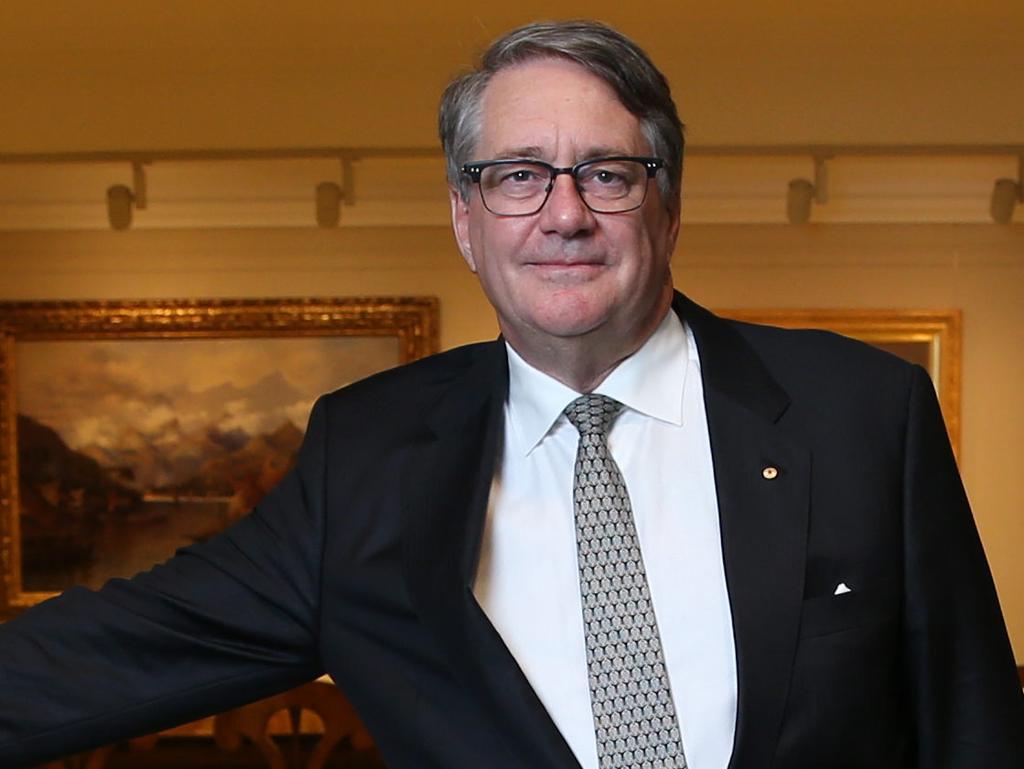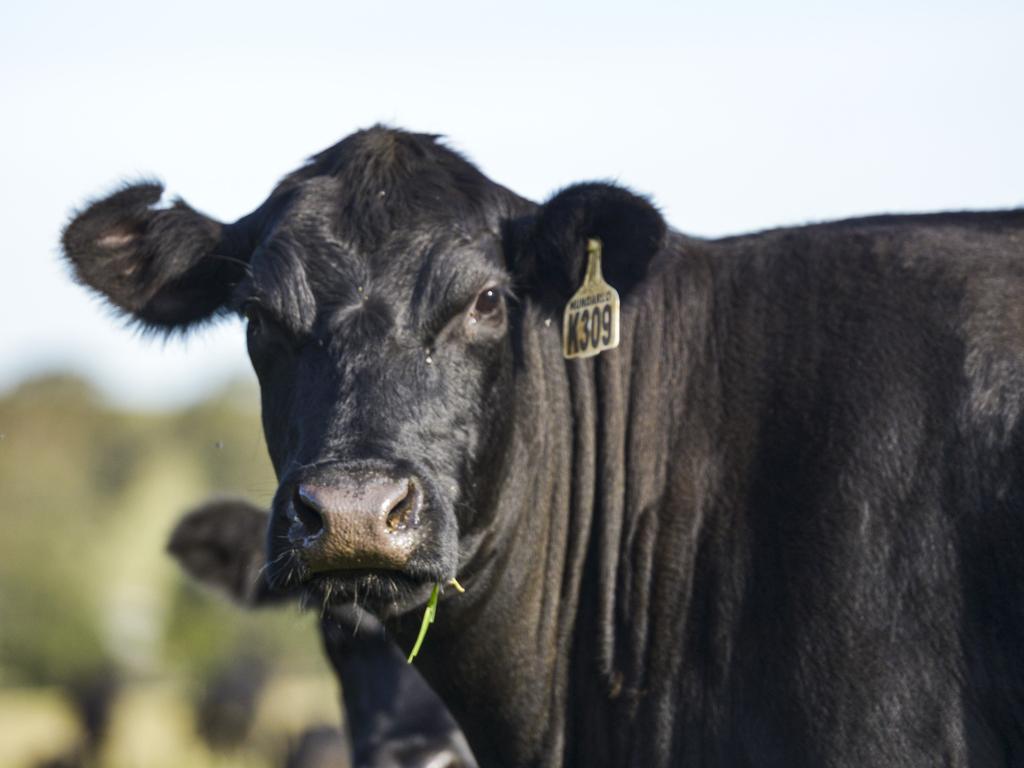In China, everyday folk are swimming against Beijing tide
China’s customs department the biggest risk for Chinese businesses working with Australian counterparts.

It is the biggest risk for Chinese businesses working with Australian counterparts: the People’s Republic of China’s customs department.
“I mean, oh heaven! When political turmoil comes, all of a sudden, your ship is stuck at sea — it can’t get into port and unload. And your wine is stuck on the ship, maybe for a whole summer. Is it still drinkable?” one wineseller calling himself Mr Kao tells The Australian.
He is in Qingdao, the port city and commercial heart of Shandong, a province of about 100 million people on China’s northeast coast that enjoys well-developed trade and investment ties to Australia.

“That really deterred me from investing more in Australian products, even though I’d really like to have more from Australia,” says Mr Kao in an interview conducted in his shop over Laoshan green tea, dried fish and something called “strawberry tomato”.
Interviews conducted by The Australian over the past three days on the coast of Shandong reveal a profound gulf between what many people in China think and what their government and its various mouthpieces tell the world that they think.
Chinese diplomats such as its Canberra ambassador, Cheng Jingye, have warned that “maybe the ordinary people will say, ‘Why should we drink Australian wine? Eat Australian beef?”, which has spooked many companies that sell the $180bn of annual exports to Australia’s largest trade market.
But in The Australian’s experience, the biggest concern Chinese business people have with Australian products has nothing to do with ordinary Chinese people. The Chinese business people worry the Chinese Communist Party might order more politically motivated trade warfare — such as the threatened 80 per cent barley tariff and the halting of beef that its state media have linked to the Morrison government’s call for an independent inquiry into the origins of the coronavirus that was first detected in Wuhan late last year.
The barley tariff — which, along with the COVID-19 inquiry push is reportedly payback for Australia’s anti-dumping claims against Chinese steel — threatens to undermine one of the bilateral relationship’s most famous offspring, Tsingtao beer.
Australian barley, along with barley from Canada, another source of CCP anger in recent years, is one of its key ingredients, as is explained to visitors at the Tsingtao Beer Museum and its flagship brewery.
The text in front of the museum’s samples of Australian and Canadian barley reads: “I’m the main raw material of brewing beer. The friends of Canada and Australia and me together brew rich barley-flavoured Tsingtao Beer,”
The barley wall in the museum comes a few rooms before an exhibit paying respect to “party building”, “political integrity” and Chinese Communist Party general secretary Xi Jinping, who despite visiting every state and territory in Australia, has presided over an increasingly fraught bilateral relationship between the two complementary economies.
After the Xi tribute room, Julia Gillard makes a cameo in a promotional video holding a bottle of Qingdao’s most famous export. That appearance by then prime minister Gillard was made before Australia banned Chinese telecommunications giant Huawei from its 5G network and passed foreign interference legislation, with bipartisan support, infuriating Xi’s regime.
Over the road from the museum and brewery, Li Xiang, a waitress at Bright Moon Restaurant, one of a number venues serving Tsingtao and seafood on “Beer Street”, says Australian barley is key to one of China’s best known brands. “It’s famous,” says Ms Li.
She is also a fan of Australian wheat. “I’m on a diet, so I eat Australian wheat flakes. They’re very good,” she says, explaining she is trying to go down a dress size.
The China Alcoholic Drinks Association — the industry body that represents the country’s beer giants, including Tsingtao which is a third owned by the Qingdao city government — has warned that China’s threatened tariff would hurt the interests of brewers “and increase trade uncertainty”.
Down on Qingdao’s Zhan Bridge — which ends with the Huilan Pavilion, whose graceful silhouette is branded on every bottle and can of Tsingtao — is another Chinese citizen whose opinion of Australia diverts notably from the strident mouthpieces of the CCP.
“Australia is a friendly country. My nephew is in Australia,” says Zhang Quantong, 71, after his morning swim in Qingdao Bay, which he does everyday wearing what Australians would call budgie smugglers, even when the beach is covered in snow in winter.
Mr Zhang’s nephew moved to Australia more than a decade ago and now works in a furniture business, he explains while drying off with a towel. “It’s a good country, Australia. You can have a good life there,” he tells The Australian.
In a piece published last week in the state-controlled nationalistic tabloid the Global Times, Guo Chunmei, an Australian studies specialist at the China Institutes of Contemporary International Relations, said Australia’s politicians risked undermining the brand of the country’s products in China.
“There are varied choices for Chinese consumers nowadays. Australia needs to focus on enhancing its own competitiveness and winning Chinese consumers’ preference and trust,” Mr Guo wrote.
Back in his shop, Mr Kao — who because of the political sensitivities asked us to use only his last name — says the trouble for Chinese business people is the attitude of China’s government.
And he has some clear advice for the Australian government if it wants to improve the relationship with China.
“Australia stands with America. That means Australia stands against China,” he explains.








To join the conversation, please log in. Don't have an account? Register
Join the conversation, you are commenting as Logout